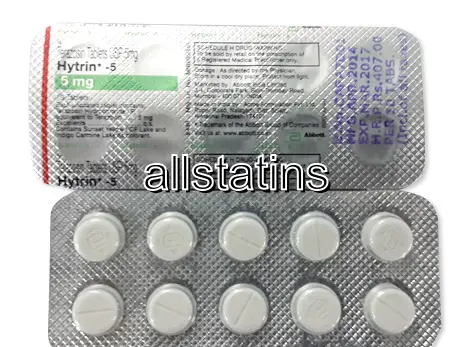| Package | Dosage | Price | Price per Dose | |
|---|---|---|---|---|
| Dosage: 1mg | ||||
| 240 pill | 1mg | $430.54 | $1.79 | |
| 180 pill | 1mg | $335.46 | $1.87 | |
| 120 pill | 1mg | $247.55 | $2.06 | |
| 90 pill | 1mg | $197.32 | $2.19 | |
| 60 pill | 1mg | $141.71 | $2.37 | |
| 30 pill | 1mg | $80.71 | $2.67 | |
| Dosage: 2mg | ||||
| 180 pill | 2mg | $507.68 | $2.82 | |
| 120 pill | 2mg | $374.93 | $3.12 | |
| 90 pill | 2mg | $303.17 | $3.37 | |
| 60 pill | 2mg | $224.23 | $3.73 | |
| 30 pill | 2mg | $132.74 | $4.41 | |
| Dosage: 5mg | ||||
| 90 pill | 5mg | $505.89 | $5.62 | |
| 60 pill | 5mg | $376.72 | $6.28 | |
| 30 pill | 5mg | $220.64 | $7.37 | |

Hytrin Description
Introduction to Hytrin
Hytrin, known by its generic name terazosin, is a medication commonly prescribed in the United States to treat conditions related to the prostate and high blood pressure. It belongs to the class of drugs called alpha-adrenergic blockers. This medication works by relaxing the muscles in the blood vessels and the prostate, which helps improve blood flow and reduce urinary symptoms. Many patients find Hytrin effective in managing their symptoms, but as with any medication, it’s important to understand its effects and potential side effects.
Usage and Benefits
Hytrin is primarily used to treat benign prostatic hyperplasia (BPH), a condition that results in an enlarged prostate. Many men experience difficulty urinating, frequent urination, or a weak urine stream. Hytrin helps alleviate these symptoms by relaxing the muscles in the prostate and bladder neck, making it easier to urinate.
In addition, Hytrin is also prescribed for managing hypertension, or high blood pressure. Lowering blood pressure helps prevent strokes, heart attacks, and kidney problems. Patients often notice a gradual decrease in blood pressure levels after starting the medication, which contributes to a better quality of life over time.
How to Take Hytrin
It is vital to follow the prescription instructions provided by your healthcare provider. Typically, Hytrin is taken once daily, with or without food. To minimize dizziness or lightheadedness, especially during the first few doses, it's advised to start with a low dose and gradually increase if recommended. Patients should avoid abrupt cessation of the medication unless advised by their doctor, as it may cause a sudden rise in blood pressure.
Regular follow-up appointments are essential to monitor the effectiveness of the medication and to make any necessary adjustments. Blood pressure and prostate symptoms should be checked periodically to ensure the medication's ongoing safety and efficacy.
Possible Side Effects and Precautions
Like all medications, Hytrin can cause side effects in some people. Common side effects include dizziness, weakness, fatigue, or headache. Some individuals may experience a rapid heart rate or nasal congestion. It’s also important to be aware of potential allergic reactions, such as rash or swelling.
Patients should inform their healthcare provider if they experience severe dizziness, fainting, or signs of allergic reactions. Hytrin can also cause a sudden drop in blood pressure, especially when standing up quickly, so caution should be exercised during activity transitions.
People with liver disease or those taking other blood pressure medications should discuss their full medical history with their doctor before starting Hytrin. Safety during pregnancy and breastfeeding should be discussed, although it is generally prescribed for men.
Availability and Quality in the U.S.
In the United States, Hytrin is available through licensed pharmacies, both in physical locations and online. When purchasing medications online, it is vital to verify the legitimacy of the pharmacy to ensure quality and safety. Always check if the pharmacy is licensed and requires a valid prescription from a healthcare provider.
Online pharmacies can offer the convenience of home delivery, but consumers should be cautious to avoid counterfeit or substandard products. Authentic Hytrin from reputable sources meets strict quality standards and provides the intended therapeutic benefits without compromising safety.